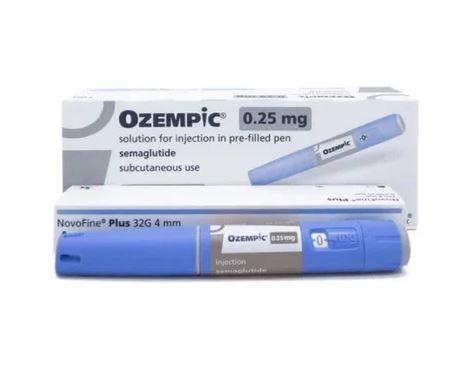Gambling Addiction Hotline & Gambling Addiction Help
Problems with gambling can damage your health and relationships, and leave you in serious debt. Gambling is insidious because it starts off as a social and recreational activity. However, the compulsive gambler soon slides into destructive behavior that leads to lying, stealing, and pushing away loved ones. If your gambling is causing problems for you or your loved ones and you’d like to stop, gambling addiction treatment and support are available. There’s evidence that gambling addiction can be successfully treated in the same way as other addictions.
How to stop a gambling addiction? If someone you know has a gambling addiction, encourage them to get help from a professional. Realize though that you can’t make someone want to change. They have to decide if they are ready to change. Talking about the problem is the first step, and the first steps are usually the hardest. What should you say? How do you get them to see that their behavior is causing problems? Read to learn more.
What is Gambling Addiction?
Gambling disorder, also known as compulsive gambling, is the uncontrollable desire to keep gambling despite the toll it takes on your life. Gambling means that you’re willing to risk something you value in the hope of getting something of even greater value. This often involves the wagering of money but can include material goods or property as well. Gambling can happen in the form of online or casino games (e.g. poker or roulette), lottery tickets, scratchcards, slot machines, and betting (e.g. sports, fixed-odds, virtual, spread). It can take place in all kinds of settings, though it is most often associated with casinos or online gambling.
What is a gambling addiction? Gambling disorder is often linked with other behavior or mood disorders. Many problem gamblers also suffer from substance abuse issues, unmanaged ADHD, stress, anxiety, depression, or bipolar disorder. To overcome your gambling problems, you’ll also need to address these and any other underlying causes as well. Although it may feel like you’re helpless to stop gambling, there are plenty of things you can do to overcome the problem, repair your finances, and finally regain control of your life.
Why is Gambling Addictive?
Why gambling is addictive? Gambling can stimulate the brain’s reward system much like alcohol or drugs can, leading to addiction. If a person has a problem with compulsive gambling, he or she may continually chase bets that lead to losses, use up savings and create debt. The person may hide his or her behavior and even turn to theft or fraud to support their addiction. To be diagnosed with gambling disorder, the DSM-5 indicates that a person must present recurring problematic gambling behavior that leads to clinically significant impairment or distress for more than a year.
Why is Gambling an Addiction?
Gambling addictions, like most other emotional conditions, is understood to be the result of a combination of biological susceptibilities, social stressors (biopsychosocial model), and ways of thinking. There are, however, elements that increase the probability that the individual will develop gambling addictions. Gambling addictions are a mental health problem that is understood to be one of many kinds of impulse-control problems and has many similarities to obsessive-compulsive disorder (OCD).
Gambling Addiction Signs
Gambling addictions are often described as silent addictions. However, it can cause a variety of signs and “gambler addiction symptoms” that mostly manifest as behavioral changes. Problem gamblers (gambling addicts) often seem preoccupied with gambling by reliving past gambling experiences or planning future ones. Increased risk-taking, such as larger bets or wagers, can also be a sign of addiction. A gambling addict may also resort to gambling in order to cope with personal stresses or problems.
Gambling addicts may lie in an effort to hide the extent of their problem and often jeopardize important relationships and opportunities because of gambling. In some cases, people may have an increased likelihood of committing crimes such as theft—typically, in an effort to generate more money to gamble. When attempting to cut back on gambling, individuals may experience signs of a gambler addict withdrawal, such as depression, insomnia, cravings, anxiety, and irritability.
What Are the Signs of Gambling Addiction?
Most “signs of a gambling addiction” are challenging for the person themselves to recognize, and they may often display increased denial. It is critical that family and friends keep a watchful eye on such signs if a gambling disorder is suspected.
Some other signs that can indicate someone has a gambling disorder or is at risk of developing one include:
- Spending more time or money gambling than you originally intended
- Feelings of regret, remorse, or guilt after gambling
- Gambling money that you cannot afford to lose
- Intending, planning, or attempting to stop gambling but not following through
- Feeling unable to control yourself when you start gambling
If you notice these addiction gambling symptoms, it may mean that you are struggling with a gambling disorder, or that you are at risk of developing one.
Gambling Addiction Symptoms
Gambling disorders can be diagnosed by a doctor or another mental health professional (gambling addiction experts) by assessing medical history, gambling habits, and mental health status. Reviewing medical history can reveal certain health concerns or medications that may contribute to increased compulsive behaviors.
What are the symptoms of gambling addiction? According to the DSM-5, an individual may be diagnosed with a gambling disorder if they exhibit four or more of the following addiction to gambling symptoms or behaviors:
- Having a fixation with gambling
- Gambling with increasing amounts of money
- Having the inability to cut back or stop gambling despite attempts to do so
- Feeling agitated or cranky when trying to stop or cut back on gambling
- Gambling when upset, anxious, or depressed
- Continuing to gamble even after losing
- Lying to family members and others about their involvement in gambling
- Committing illegal acts to fund their gambling habit
- Endangering or losing an important relationship, job, or educational or career opportunity due to gambling
- Symptoms of a gambling addiction may include leaning on others for money to relieve financial problems caused by gambling.
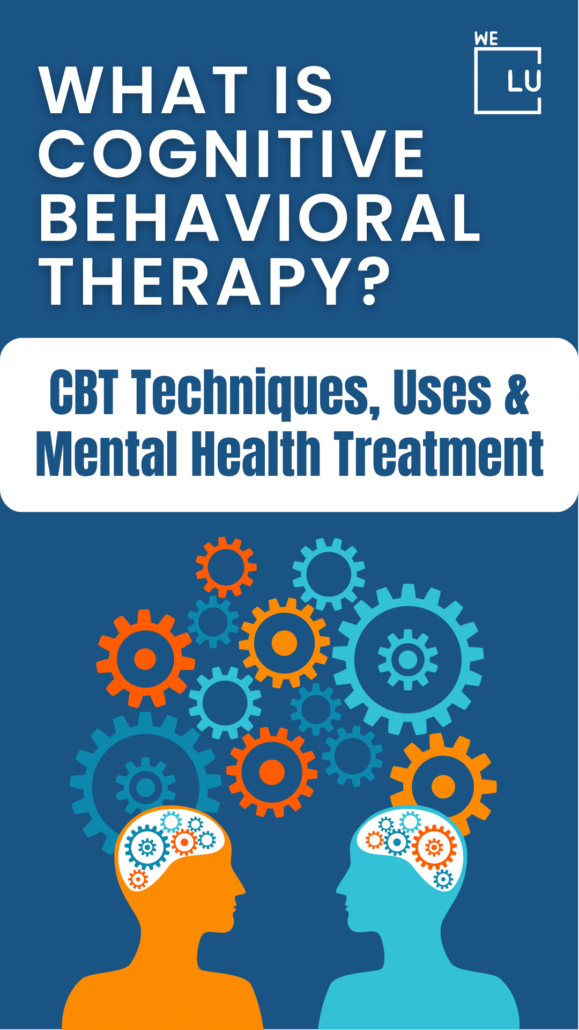
Skip To:
Learn More:
- Drug Abuse and Deviant Behavior
- Alcohol Abuse Information
- Effects of Heroin Abuse – Physical, Behavioral, Psychological, & Social
- The Link Between ADHD and Alcohol, Risks & Interactions
- Alcohol And Anxiety Co-Occurring Mental Health Disorder
- Substance Abuse Defined, Signs, Symptoms, Link to Mental Health
- Is Alcoholism a Mental Disease?
- What Is DBT Therapy? How It Works for Addiction & Techniques
- Behavioral Counseling in Drug Abuse Treatment Centers
- Benefits of Treating Drug Addiction
Get Help. Get Better. Get Your Life Back.
Searching for Accredited Drug & Alcohol Rehab Centers Near You? Or Mental Health Support?
Even if you have failed previously, relapsed, or are in a difficult crisis, we stand ready to support you. Our trusted behavioral health specialists will not give up on you. Call us when you feel ready or want someone to speak to about therapy alternatives to change your life. Even if we cannot assist you, we will lead you wherever you can get support. There is no obligation. Call our hotline today.
FREE Addiction Hotline – Call 24/7Gambling Addiction Statistics
Statistics on gambling addiction show that there has been massive, unprecedented growth in commercial gambling in recent decades. This is expected to continue, expanding in new, high-risk populations and fueled globally by ready online access. The gambling-related burden of harm appears to be of similar magnitude to harm attributed to major depressive disorder and alcohol misuse and dependence. It is substantially higher than harm attributed to drug dependence disorder. According to the National Institute of Health, gambling addiction suicide rates are very alarming. In community samples, between 17 and 39 percent of those who gamble problematically have been reported to have suicide ideation and between 2 and 57 percent have reported suicide attempts
0.1% to 6.0%
Adult past year problem gambling prevalence rates range from 0.1% to 6.0%, with two to three times as many people experiencing less serious sub-clinical problems.
Source: CDC
35% to 63%
35–63% of individuals seeking
treatment for gambling addiction also screened positive for a
lifetime substance use disorder (SUD),
Source: NCBI
87%
Studies also demonstrate that
individuals with gambling disorders have high rates of lifetime mood (60–76%), anxiety (16–40%), and personality (87%)
disorders, particularly anti‐social personality disorder.
Source: NCBI
Gambling Addiction Facts
Gambling has a long pedigree, going back millennia and pervading many cultures and societies.
Since the mid-1980s there has been unprecedented growth in commercial gambling and annual
global gambling losses were estimated to total $400 billion in 2016.
This growth is driven by increasing acceptance of legal gambling, the intersection of gambling
and financial technologies, impacts of internet and mobile devices, the spread of gambling to
traditionally non-gambling settings and other globalization forces.
Gambling Disorder
What are the facts about gambling addiction? Gambling disorder (otherwise known as pathological gambling) is a psychiatric condition characterized by persistent and recurrent maladaptive patterns of gambling behavior, leading to impaired functioning. It is associated with reduced quality of life, and high rates of bankruptcy, divorce, and incarceration. Although most people who engage in one or more forms of gambling do so responsibly and without undue negative impact on life, some individuals find that they become preoccupied with gambling, and it has multiple negative consequences. For these people, their gambling behavior has devastating consequences that impact the individual, his or her family, and society.
Pathological Gambling
Serious problem gambling was referred to as pathological gambling when first included in the DSM III in 1980. It was placed in the impulse-control disorders category. Pathological gambling was renamed gambling disorder in the DSM-V and moved to the new category of ‘Addictions and Related Disorders. Gambling disorder is the only non-substance addiction in the new category. Its inclusion was based on extensive research demonstrating commonalities between serious problem gambling and substance use disorders. Continue reading the article to learn more facts on gambling addiction. .
Comorbidity
Psychiatric comorbidity is common in individuals with gambling addictions. Frequent co‐occurrence has been reported between SUDs (including nicotine dependence) and gambling disorder, with the highest odds ratios generally observed between gambling and alcohol use disorders. Among clinical samples, 52% reported either alcohol or drug abuse, and 35–63% of individuals seeking addiction gambling treatment also screened positive for a lifetime SUD, rates notably higher than that found in the general population (26.6%).
Studies also demonstrate that individuals with gambling disorder have high rates of lifetime mood (60–76%), anxiety (16–40%), and personality (87%) disorders, particularly anti‐social personality disorder. Elevated rates of other behavioral addictions (compulsive buying and compulsive sexual behavior) have also been found. In a systematic review and meta‐analysis of the available population surveys exploring comorbid disorders in individuals with gambling disorder, the strongest associations were with nicotine dependence (mean co‐morbidity of 60.1% of subjects), followed by SUDs in general (57.5%), followed by any mood disorder (37.9%)

Get Your Life Back
Find Hope & Recovery. Get Safe Comfortable Detox, Addiction Rehab & Mental Health Dual Diagnosis High-Quality Care at the We Level Up Treatment Centers Network.
Hotline (877) 378-4154Diagnosing Gambling Disorders
Studies have shown that compulsive or pathological gambling usually goes unrecognized in clinical settings mainly because clinicians fail to screen for the behavior. However, diagnosing the problem is usually straightforward and can be done by asking patients if they feel they cannot control their gambling or if they are preoccupied with gambling.
An affirmative answer can be followed up with questions determining the degree of impairment (whether it’s affecting patients’ social or family life, their financial well-being, or their work) and the distress that this behavior causes. It must also be determined that a patient’s gambling behavior is not simply a symptom of bipolar disorder. Simple self-reporting and clinician-administered screening and diagnostic measures for pathological gambling and bipolar disorder are available
Gambling Addiction Treatment Options
Can a gambling addiction be cured? Gambling addiction treatment begins with the individual acknowledging their disorder. This can be one of the most difficult parts of treating compulsive gambling, as it is often very difficult for compulsive gamblers to admit they have a problem. In some patients, medications that treat mental disorders, such as mood stabilizers or antidepressants, can aid in reducing gambling disorder behaviors. Long-term treatment to overcome “gamble addiction” often concentrates on behavioral changes and support.

Gambling Addiction Treatment Centers
Gambling addiction treatment centers generally offer research-based practices and structured recovery programs. Many treatment centers for gambling addiction use methodologies similar to the approaches found in chemical dependency treatment programs. In fact, individuals with gambling disorders are also likely to have substance use, mood, personality, and anxiety disorders.
Treatments for gambling addiction employed at gambling addiction rehab must accommodate and address both diagnoses. Some programs specialize in treating addictions and mental illness or mental health issues as a dual diagnosis. Depending on the person’s needs, he or she can stay at an inpatient rehab for gambling addiction, an inpatient treatment gambling addiction facility, or find outpatient programs.
Residential treatment centers (rehab gambling addiction) usually offer the following services:
- Constant supervision from professionals
- Daily individual and group therapy sessions
- Life Coaching
Gambling Addiction Therapy
Online Gambling Addiction. Online gambling disorder is a compulsive need to keep gambling online despite the harm it causes. The main symptoms of online gambling disorder are spending the most time on this activity, financial problems, experiencing cravings when unable to gamble online, and willingness to spend more and more money.
Sports Gambling Addiction. Experts have found that sports betting may create problems worse than traditional casinos and cards. People who bet on sports often believe they have an edge because they follow the teams. The random bounce of a football or a blown call doesn’t tend to factor into a bettor’s belief system.
Can gambling addiction be cured? Yes, it can. Working with a therapist for gambling addiction can help with gambling disorder issues by identifying unhealthy internal and family dynamic patterns that contribute to your compulsive behaviors or addictive tendencies. Gambling addiction therapy is a safe place to address sensitive topics and also builds coping skills.
Cognitive Behavioral Therapy for Gambling Addiction
The most often studied treatment type for gambling disorder is Cognitive Behavioral Therapy (CBT). This type of therapy attempts to change the thoughts and behaviors that are fundamental to maintaining a pattern of behavior (e.g., gambling disorder). The main goal of CBT for compulsive gambling is to identify and change “cognitive distortions and errors” that are linked with excessive gambling and its adverse effects.
For gambling addiction treatment, CBT can include at least four components: (a) correcting cognitive distortions about gambling; (b) developing problem-solving skills; (c) teaching social skills; and (d) teaching relapse prevention. There are a number of CBT trials that suggest that it is an effective form of treatment for gambling.
Counseling for Gambling Addiction
Gambling addiction counseling and talking therapy can help you to heal any old emotional wounds that are getting in your way. The process of building trust and rapport with gambling addiction therapists can help to identify specific personal vulnerabilities to relapse, and hidden triggers and to devise a plan for the successful maintenance of your recovery. Behavioral counseling gambling addiction therapy uses a process of exposure to the behavior you want to unlearn and teaches you skills to reduce your urge to gamble.
Gambling Addiction Medications
Treating gambling addiction may include medications. Several medications have been studied as treatments for pathological gambling, and the range of medication classes—opioid antagonists, serotonin reuptake inhibitors (SRIs), and mood stabilizers—that have been tested reflects the different ways pathological gambling is categorized. Because no medication currently is approved by the Food and Drug Administration (FDA) for treating pathological gambling, patients should be informed of the off-label use of medications for gambling addiction, as well as the empirical basis for considering medication as a treatment.
First-class Facilities & Amenities
World-class High-Quality Addiction & Mental Health Rehabilitation Treatment
Rehab Centers TourRenowned Addiction Centers. Serene Private Facilities. Inpatient rehab programs vary.
Addiction Helpline (877) 378-4154Proven recovery success experience, backed by a Team w/ History of:
15+
Years of Unified Experience
100s
5-Star Reviews Across Our Centers
10K
Recovery Success Stories Across Our Network
- Low Patient to Therapist Ratio
- Onsite Medical Detox Center
- Comprehensive Dual-Diagnosis Treatment
- Complimentary Family & Alumni Programs
- Coaching, Recovery & Personal Development Events
How to Stop Gambling Addiction?
How to stop addiction to gambling? Once you become aware that you could have a gambling disorder problem, you may feel ashamed and guilty. Self-blame and self-harm can increase anxiety and may urge you to gamble more. Instead, seek help so that you can change your life for the better. If gambling is causing problems in your life, there are many things you can do to stop it from being an issue.
7 Tips to Stop Gambling Disorder
- Set Goals – Setting short-term and long-term goals may help you to stay focused and clear about cutting down or giving up your gambling. Try to plan your days so that you aren’t tempted to fill empty spaces by gambling.
- Do something completely different – Your brain got used to functioning in a certain way when gambling, but it still needs to be constantly stimulated now that you have stopped. So try to set yourself new goals and tasks each day.
- Avoid high-risk situations – taking out loans, such as the use of credit cards, carrying large amounts of money with you, using gaming venues for socializing, or gambling as a reaction to emotions. These behaviors will weaken your resolve to control or stop your gambling.
- Find alternatives to gambling – many individuals continue gambling because they do not know what else to do with their spare time. Explore new activities and hobbies.
- Find ways that help you cope better with stress – Stress is the barometer of how we manage our emotions and can be a major contributing factor in relapse from gambling recovery. It is vital to find new, healthy ways to cope with stress, whether that is physical exercise, meditation, hypnotherapy, or talking to a trusted friend.+
- Keep a gambling diary – this will help you better understand your problem. Include the type of gambling, the time spent, and the amount you gamble. Write down the thoughts, feelings, and situations that occur before and during a gambling session, so you can start to understand the causes of gambling.
- Identify your self-sabotage triggers – Your clean time is precious. See any urge to gamble as a temporary menace and be prepared for them to emerge before special occasions such as birthdays, wedding anniversaries, or exam time.
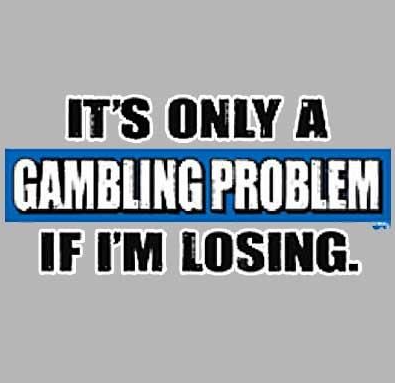
Help for Gambling Addiction – How to Help Someone With Gambling Addiction?
How to help someone with a gambling addiction? It can be challenging to confront someone about gambling addiction, the best thing you can do is to start by asking someone if the problem exists. Although you might not get a straight answer and you won’t know how someone will react, if you approach someone in a non-confrontational way, you might get some useful information.
How to help a gambling addict? When talking to a loved one with a gambling disorder, remember that if you want someone to be honest with you, be honest with yourself. Letting someone know you suspect a problem and are worried, in a supportive and concerned manner, is more likely to work than being deceptive, judgmental, or aggressive.
Talk about how you’re feeling and what you’ve observed as these things are less likely to trigger an argument. Some individuals with “gamble addiction” problems will be relieved and grateful the subject was broached, as they want to talk about it. Other individuals might not want to talk because they’re ashamed and could become defensive. If a person lies about having a problem, you can still say you care about your loved one and give them information on where to get help.
World-class, Accredited, 5-Star Reviewed, Effective Addiction & Mental Health Programs. Complete Behavioral Health Inpatient Rehab, Detox plus Co-occuring Disorders Therapy.
CALL (877) 378-4154End the Addiction Pain. End the Emotional Rollercoaster. Get Your Life Back. Start Drug, Alcohol & Dual Diagnosis Mental Health Treatment Now. Get Free No-obligation Guidance by Substance Abuse Specialists Who Understand Addiction & Mental Health Recovery & Know How to Help.
Risk factors That May Contribute to Gambling Disorders
How do you become addicted to gambling? Although most individuals who wager or gamble never develop gambling addictions and problems, certain factors are more often linked with compulsive gambling:
- Mental health conditions. Individuals who are addicted to gambling often have substance abuse problems, personality disorders, anxiety, or depression. Gambling disorder or compulsive gambling may also be linked with obsessive-compulsive disorder (OCD), bipolar disorder, or attention-deficit/hyperactivity disorder (ADHD).
- Age. Compulsive gambling is more expected in younger and middle-aged individuals. Gambling during childhood or the teenage years increases the risk of developing a gambling disorder. But gambling disorder in the older adult population can also be a problem.
- Sex. Gambling disorder is more common in men than women. Women who gamble generally start later in life and may become addicted more quickly. But gambling patterns among men and women have become increasingly similar.
- Family or friend influence. If your family members or friends have a gambling disorder problem, the chances are greater that you will, too.
- Medications used to treat Parkinson’s disease and restless legs syndrome. What are the drugs that cause gambling addiction? Drugs called dopamine agonists have a rare side effect that may result in compulsive behaviors, including gambling, in some individuals.
- Certain personality characteristics. Being highly competitive, a workaholic, restless, impulsive, or easily bored may increase your risk of compulsive gambling.
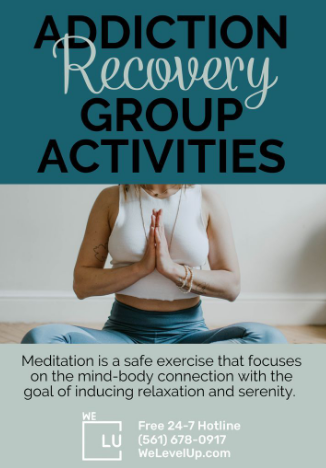
Gambling Addiction Stories
Sharing stories about gambling addiction, whether you’re a former gambler, friend, family member, or loved one can help people find support and strength in each other’s journeys and consequently, feel less alone.
In order to get beyond the facts, and statistics of gambling addiction, and deliver a more personal and individual view of this issue, we have created this section to feature the stories of gambling addicts who have been affected by problem gambling.
Individuals who have sought treatment for gambling disorder have countless stories of heartbreak, financial devastation, support, reinvention, and recovery. As you read these “gamble addiction stories”, you will be reminded that problem gambling affects not only the gambler but also their family members, friends, colleagues, and employers; treatment providers; advocates; and many others.
Ann’s Story
Once I became hooked, it became my life. Gambling became my main source of entertainment. It was the only thing that I cared about. I’d cheat, steal and otherwise do whatever it took to get money.
Jacob’s Story
When I was about 10, I remember sensing that something was wrong. I went upstairs and heard my dad screaming and crying into the phone. I heard him saying, “I paid you. I paid you. You’re not getting another penny out of me!” I remember his distress vividly, and it was devastating for me to see my dad in that way. Later, I learned he was talking to a loan shark because of financial problems brought about by gambling.
Jonathan’s Story
After three years of my gambling addiction, I lost the family that I was blessed to have. My beautiful wife and children have left me and I have not seen them in over two years. I now live in despair. The high education, good status, and jobs that I once had seem to have vanished.
Experience Transformative Recovery at the We Level Up Treatment Center.
See our authentic success stories. Get inspired. Get the help you deserve.



Start a New Life
Begin with a free call to an addiction & behavioral health treatment advisor. Learn more about our dual-diagnosis programs. The We Level Up treatment center network delivers various recovery programs at each treatment facility. Call to learn more.
- Personalized Care
- Caring Accountable Staff
- World-class Amenities
- Licensed & Accredited
- Renowned w/ 5-Star Reviews
We’ll Call You
Relationship to Other Mental Illnesses
Although pathological gambling is classified as an impulse-control disorder, it has many similarities to substance abuse. Clinical similarities are reflected in the diagnostic criteria for both disorders and include symptoms of tolerance and withdrawal; repeated, unsuccessful attempts to cut back or stop; and impairment in major areas of life functioning. Epidemiological data also support a relationship between pathological gambling and substance abuse, as pathological gamblers are also likely to abuse alcohol and other drugs.
Gambling Disorder and Alcohol and Drug Abuse
Phenomenological data further support a relationship between behavioral and drug addictions. For example, high rates of pathological gambling and substance abuse have been reported during adolescence and young adulthood. In addition, the telescoping phenomenon, which reflects the rapid rate of progression from initial to problematic behavior in women compared with men, initially described for alcoholism has been applied to pathological gambling.
Emerging biological data, such as those identifying genetic contributions to alcohol use and gambling disorders and changes in brain activity underlying gambling urges and cocaine cravings, provide further support for a relationship between pathological gambling and substance abuse.
Gambling Disorder and OCD
Pathological gambling also has been categorized as an obsessive-compulsive spectrum disorder as well as an affective spectrum disorder. The inclusion of pathological gambling within the obsessive-compulsive spectrum is based on the fact that people who are compulsive gamblers tend to have repetitive thoughts and behaviors.
Although ritualistic behaviors are common among people with obsessive-compulsive disorder (OCD) and pathological gambling, other aspects of the conditions are different. For example, gambling has an ego-syntonic nature, meaning it is acceptable to or consistent with a person’s fundamental beliefs and personality, while the nature of compulsions in OCD is ego-dystonic or inconsistent with one’s beliefs.
Gambling Disorder and Mood Disorders
The association of pathological gambling with mood disorders has led to suggestions that it is an affective spectrum disorder. Many people who are pathological gamblers report that the pleasurable yet problematic behaviors alleviate negative emotional states. Because the behaviors are risky and self-destructive, the question has also been raised as to whether pathological gambling reflects subclinical mania or cyclothymia.
Gambling Disorder and Depression. Depression in individuals who are pathological gamblers may be distinct from primary or uncomplicated depression. That is, depression in people who are pathological gamblers may represent a response to financial difficulties, shame, and embarrassment.
Gambling Disorder and Bipolar Disorder. Rates of co-occurrence of pathological gambling and bipolar disorder may not be as high as initially thought. Nonetheless, in some individuals who are pathological gamblers, brain-imaging studies have found regional differences in brain activity distinguishing bipolar subjects from controls and subjects who are pathological gamblers from controls when asked to perform a cognitive task involving attention and response inhibition.
The first and most important step in treating any disorder is to diagnose it properly. Many people are ashamed of the behaviors associated with pathological gambling and, therefore, may not report that they have a problem. For that reason, clinicians need to screen for pathological gambling if the disorder is to be treated properly.
If you or a loved one are struggling with a long-term gambling disorder and a co-occurring mental health condition such as anxiety and depression, contact one of our helpful treatment specialists today. We Level Up can provide information on dual diagnosis programs that may fit your specific needs. Call us today!
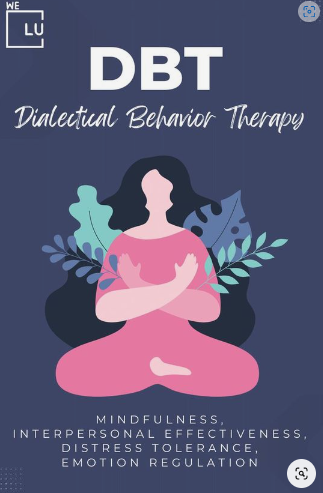
Search We Level Up NJ “Gambling Addiction Hotline” Topics & Resources
Sources
[1] Get Help for Problem Gambling – https://portal.ct.gov/gaming/ChildPage—Get-Help-for-Problem-Gambling?language=en_US Gambling Addiction Number
[2] Compulsive and Problem Gambling – Gamble Addiction – https://www.ddap.pa.gov/Get%20Help%20Now/Pages/Problem-Gambling.aspx
[3] Gambling disorder and other behavioral addictions: recognition and treatment– https://pubmed.ncbi.nlm.nih.gov/25747926/
[4] Gambling addiction – signs gambling addiction – https://pubmed.ncbi.nlm.nih.gov/23529775/
[5] Substance Use and Co-Occurring Mental Disorders- https://www.nimh.nih.gov/health/topics/substance-use-and-mental-health
[6] Pathological gambling: addiction or compulsion? – Gambling Addiction Diagram – https://pubmed.ncbi.nlm.nih.gov/11447568/gamble addiction test
[7] Gambling Disorder and Other Behavioral Addictions: Recognition and Treatment – Gambling Addiction Why – https://www.ncbi.nlm.nih.gov/pmc/articles/PMC4458066/
[8] The epidemiology and impact of gambling disorder and other gambling-related harm – https://www.who.int/docs/default-source/substance-use/the-epidemiology-and-impact-of-gambling-disorder-and-other-gambling-relate-harm.pdf?sfvrsn=5901c849_2/ quotes on gambling addiction
[9] Gambling disorder and its relationship with substance use disorders: implications for nosological revisions and treatment– https://pubmed.ncbi.nlm.nih.gov/25864600/https://www.ncbi.nlm.nih.gov/pmc/articles/stories of gambling addiction/
[10] Pathological gambling and comorbid substance use – https://pubmed.ncbi.nlm.nih.gov/12060192/gambling addiction new jersey





